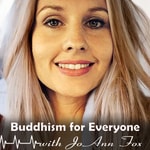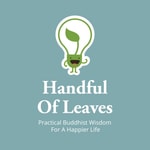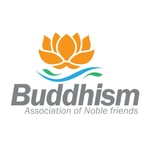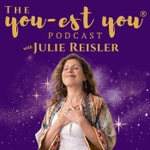Buddhism for Everyone with JoAnn Fox – Details, episodes & analysis
Podcast details
Technical and general information from the podcast's RSS feed.

Buddhism for Everyone with JoAnn Fox
JoAnn Fox: Buddhist Teacher
Frequency: 1 episode/11d. Total Eps: 214

Recent rankings
Latest chart positions across Apple Podcasts and Spotify rankings.
Apple Podcasts
🇺🇸 USA - buddhism
31/07/2025#61🇬🇧 Great Britain - buddhism
30/07/2025#24🇨🇦 Canada - buddhism
29/07/2025#84🇬🇧 Great Britain - buddhism
29/07/2025#16🇺🇸 USA - buddhism
29/07/2025#68🇬🇧 Great Britain - buddhism
28/07/2025#22🇺🇸 USA - buddhism
28/07/2025#89🇬🇧 Great Britain - buddhism
27/07/2025#45🇺🇸 USA - buddhism
27/07/2025#59🇬🇧 Great Britain - buddhism
26/07/2025#40
Spotify
No recent rankings available
Shared links between episodes and podcasts
Links found in episode descriptions and other podcasts that share them.
See allRSS feed quality and score
Technical evaluation of the podcast's RSS feed quality and structure.
See allScore global : 48%
Publication history
Monthly episode publishing history over the past years.
Episode 196 - Making mindful choices
Episode 196
samedi 6 juillet 2024 • Duration 35:06
This episode explores how to make mindful choices that lead to happiness and well-being in the future. We can learn how to distinguish between virtuous actions and nonvirtuous actions Virtuous actions are those that lead to positive outcomes, both for oneself and others. They are rooted in wholesome mental states such as generosity, compassion, and wisdom. With mindfulness, we can detect whether our mind is in a virtuous mental state. Virtuous states of mind feel, like loving-kindness, feel pleasant and peaceful.
Conversely, non-virtuous actions are those that lead to negative outcomes, causing harm to oneself and others. They arise from unwholesome mental states such as greed, anger, and ignorance. Sometimes these "unwholesome mental states" are called "delusions" because they distort reality. Anger, for example, is a mental state that always sees its object as unpleasant, though no person or experience is innately unpleasant. When our mental state is non-virtuous, it feels uncomfortable and tight. Checking to see how we are feeling before we act will let us know if we're acting with a non-virtuous state of mind. When we act out of non-virtue, the result is harmful to us because it leads to suffering in our future (bad karma).
A simple mindfulness practice of checking whether our choices will bring happiness or suffering in the future follows:
Before you act, ask yourself:
How does this make me feel?
Will it bring happiness to myself and others?
Is it the right time?
Buddha gave a similar directive when talking about speech:
“Monks, a statement endowed with five factors is well-spoken, not ill-spoken. It is blameless & unfaulted by knowledgeable people. Which five?
“It is spoken at the right time. It is spoken in truth. It is spoken affectionately. It is spoken beneficially. It is spoken with a mind of good-will.”
-- Buddha, The Vaca Sutra, AN 5.198
By consciously engaging in wholesome actions, nurturing positive mental states, and adhering to ethical principles, we can transform our lives and the effects we have on those around us. Let us commit to this journey of virtue, knowing that each step brings us closer to true happiness and enlightenment.
Him I call a brahmana, who is wise and is profound in his knowledge,
who knows the right way from the wrong way,
and who has attained the highest goal (i.e., arahatship).
--Buddha, the Dhammapada Verse 403
References with Links
Buddha (1986).The Dhammapada: Verses and Stories. Translated by Daw Mya Tin, M.A. (Website). Edited by Editorial Committee, Burma Tipitaka Association Rangoon. Courtesy .of Nibbana.com. For free distribution only, as a gift of dhamma. Retrieved from https://www.tipitaka.net/tipitaka/dhp/verseload.php?verse=403
Buddha. Vaca Sutta, The Book of Fives, AN 5.198. suttacentral.net. Retrieved from: https://suttacentral.net/an5.198/en/thanissaro?lang=en&reference
Je Tsongkhapa (2014). Karma. Great Treatise on the Stages of the Path to Enlightenment, by Je Tsongkhapa, Volume 1 (Kindle). Translated by the Lamrim Chenmo Translation Committee. Joshua Cutler, Editor-in-Chief, and Guy Newlan, Editor.
Find us at the links below:
To learn about the Buddhist Study Group or Courses, visit our Website: BuddhismforEveryone.com
Facebook: https://www.facebook.com/Buddhismforeveryone
Facebook Group: Join our private group at:https://www.facebook.com/groups/sanghatalk/
Instagram: https://www.instagram.com/buddhism.with.joann.fox
Episode 195 - Feel before you act
mardi 21 mai 2024 • Duration 35:40
In this episode we explore one of the core teachings of the Buddha—the Five Aggregates and their connection to our problems and suffering.
The Buddha taught that life is pervaded by dukkha, which means dissatisfaction or suffering. More specifically, in the First Noble Truth, Buddha taught that “The five aggregates subject to clinging are suffering.” These aggregates—form, sensation, perception, mental formations, and consciousness—are the parts that make our self. When our five aggregates, including our consciousness, are conditioned by ignorance, we experience an unenlightened life subject to dissatisfaction.
In essence, our unenlightened life is suffering.
Enlightened life is Nirvana, which is free of dissatisfaction and suffering.
How do we experience an enlightened life? Buddha said that when we purify our aggregates of delusions, such as attachment and ignorance, we experience an enlightened life.
In this episode, we begin a journey to purify our intentions and actions of delusions. JoAnn Fox teaches a simple way to check whether your intention is motivated by delusion. She also guides a meditation on this technique and offers a mindfulness practice for daily life.
The five aggregates are:
-
form
-
feeling
-
discrimination
-
mental formations (or influences of a previous life, mental states or delusions)
-
consciousness
Mindfulness Practice
-
Observe your intentions before acting by asking yourself “What are the consequences of this choice?” Will it bring happiness?
-
What is my intention?
Observe how you feel. Delusions make our minds uncomfortable. If we’re feeling uncomfortable, a delusion like anger or attachment is present in our minds, making our intention unskillful. This is a simple way to see if the intention is good or bad.
Him I call a brahmana, who even in this existence realizes the end of dukkha (i.e., Nibbana), who has laid down the burden (of the skandhas) and who is free from moral defilements.
--Buddha, The Dhammapada, Verse 402
Interested in live weekly classes with Joann Fox?
Visit www.Buddhismforeveryone.comongoing-buddhist-study-program/ to enroll or learn more.
Find us at the links below:
Website: BuddhismforEveryone.com
Facebook: https://www.facebook.com/Buddhismforeveryone
Podcast Facebook Group: Join our private group at:https://www.facebook.com/groups/sanghatalk/
Instagram: https://www.instagram.com/buddhism.with.joann.fox
Episode 187 - Cleaning up bad karma
Episode 187
mercredi 27 décembre 2023 • Duration 37:47
There is a way to purify negative karma! Phew. Buddha taught the Four Powers of Purification as a method to purify the negative karma we’ve created in the past. The powers of purification act together or alone. For example, as soon as we have even a moment of regret for some harm we’ve done, we start to purify that karma. However, to fully purify negative karma form previous actions, the four powers can be used as a meditation. This practice illuminates Buddhism’s most essential tenet: that we can profoundly change--and even become a completely pure, enlightened being.
How to purify negative karma through the Four Powers:
1. Regret
2. Reliance
3. Remedy
4. Resolve
-
The Power of Regret
The first power is healthy regret. This type of regret stands in contrast to guilt. Guilt is anger towards oneself. It makes us feel bad about ourselves. Regret, however, understands we acted out of delusions like anger, jealousy, pride, or greed, but our nature remains pure and good. A mind of regret wants to be free of these delusions like getting poisons out of ourselves. Regret makes us naturally desire not to repeat that action and the harm we caused.
-
The Power of Reliance
To understand the power of reliance, imagine that making a mistake is like falling down on the ground. Just as we depend on the ground to stand up again, when we cause harm, we can purify it only by depending on the two types of beings we harmed: the Buddha (who is a wise guide, like a doctor) and ordinary living beings.
First, we rely on the Buddha by following his teachings to become better. If you're not a Buddhist, you can still do something similar. You could renew your commitment to follow the advice of someone you admire, or dedicate yourself again to good things you want to do. You can practice reliance in the meditation on the four powers by asking a higher power for help, like praying to Jesus or asking Buddha for help to purify. Second, we rely on other living being by developing compassion and love for them.
3. The Power of Remedy
This refers to the power of applying remedies. In this step, we need to do something positive to counteract the negative energy we created, JoAnn Fox shares a traditional method for applying remedies by reciting the mantra of Vajrasattva, Buddha of Purification (see the mantra below.)
If you feel comfortable visualizing an enlightened being, you can visualize a figure such as Buddha or Vajrasattva above your head. You can visualize Buddha as you’ve seen him depicted or simply as a being made of golden light. Vajrasattva can be imagined in a simple way as a being of white light. While reciting the mantra, imagine light flowing down from the holy being at your crown. The light flows down, through the crown of your head, and fills your entire body purifying all your negative karma and delusions.
If you do not feel comfortable visualizing such a being, you can imagine a sphere of light above your head, thinking that it represents all enlightened qualities like love and compassion. Visualize light flowing down from the sphere and filling you.
The short Mantra of Vajrasattva, Buddha of Purification
Om Vajra Sattva Hum
4. The Power of Resolve
The power of resolve (sometimes called the power of promise) involves a promise to try to refrain from a harmful action in the future. If you’re trying to purify a specific negative action, it can be especially meaningful to refrain from an action that is similar to that original harmful action. For example, if you’re trying to purify stealing, you can promise to refrain from stealing in the future. Alternatively, you can decide to act in more positive ways, such as being more generous or promising to donate to a charity.
“First, if all the causes and conditions for something to occur come together and there is nothing opposing its arising, the effect is certain to occur. For example, if a barley seed (the cause) is planted, the conditions of moisture, warmth, sunlight, and nutrients come together, and opposing conditions such as frozen ground, disease, and being trampled by animals, don’t oppose it, a barley plant is certain to grow. Similarly, if you have the karmic seeds of anger and that anger is not opposed by your practice of patience, understanding of emptiness, or a vow or commitment not to get angry, when you meet with someone (the external condition) who says or does something you experience as harmful, your karmic urge will drive you to get angry.” --Je Tsongkhapa
O foolish one!
What is the use of wearing matted hair?
What is the use of your wearing a garment made of antelope skin?
In you, there is a forest (of moral defilements);
you clean yourself only externally.
—Buddha, The Dhammapada. Verse 394
References with Links
Buddha (1986).The Dhammapada: Verses and Stories. Translated by Daw Mya Tin, M.A. (Website). Edited by Editorial Committee, Burma Tipitaka Association Rangoon. Courtesy .of Nibbana.com. For free distribution only, as a gift of dhamma. Retrieved from https://www.tipitaka.net/tipitaka/dhp/verseload.php?verse=394
Je Tsongkhapa (2014). Great Treatise on the Stages of the Path to Enlightenment, by Je Tsongkhapa, Volume 1 (Kindle). Translated by the Lamrim Chenmo Translation Committee. Joshua Cutler, Editor-in-Chief, and Guy Newlan, Editor, pg 209-214.
Find us at the links below:
Website: BuddhismforEveryone.com
Facebook: https://www.facebook.com/Buddhismforeveryone
Facebook Group: Join our private group at:https://www.facebook.com/groups/sanghatalk/
Instagram: https://www.instagram.com/buddhism.with.joann.fox
Episode 92 - If You Want To Be a Buddhist...
lundi 2 novembre 2020 • Duration 27:55
Taking refuge is the key expression of commitment to Buddhism. If you want to identify as a Buddhist in a more formal way, you can take refuge by saying the refuge prayer: “I go for refuge to Buddha, Dharma and Sangha.” When we take refuge, we are committing ourselves to peace and the path to that inner peace. The Buddha is the teacher, and the Sangha (spiritual community) assists you in your practice, but the real refuge is the jewel of the teaching, because experience of the teachings protects our mind and solves our problems.
You are now at the end of life;
You’re headed for Yama’s presence
With no resting place along the way,
No provisions for the journey.
Make an island for yourself.
Be quick in making effort. Be wise.
Unblemished, with corruption removed,
You will experience birth and old age no more. (Verse 238)
—Buddha, The Dhammapada
Links and References
Buddha.The Dhammapada. Translated by Gil Fronsdale. Shambala, Boston and London, 2011, pp.62.
Je Tsongkhapa. Great Treatise on the Stages of the Path to Enlightenment, Volume 1. Pages 206-208. Translated by the Lamrim Chenmo Translation Co.
Episode 91 - An Inner Being
mardi 20 octobre 2020 • Duration 29:42
A Buddhist is sometimes referred to as an inner being. This is one who solves their problems and seeks happiness within. In this episode, we look at how to recognize whether we are seeking inner or outer refuge, the difference being whether it can truly solve our problem and give us peace—or not.
Yama’s henchmen are standing by.
You stand at the door of death
With no provisions for the journey.
Make an island for yourself.
Be quick in making effort. Be wise.
Unblemished, with corruption removed,
You’ll enter the divine realm of the noble ones.
—Buddha, The Dhammapada
Links and References
Buddha.The Dhammapada. Translated by Gil Fronsdale. Shambala, Boston and London, 2011, pp.62.
Je Tsongkhapa. Great Treatise on the Stages of the Path to Enlightenment, Volume 1. Pages 206-208. Translated by the Lamrim Chenmo Translation Co.
Episode 90 - Free your mind and the rest will follow
Season 1 · Episode 90
lundi 5 octobre 2020 • Duration 33:39
According to the Buddha, thoughts create karma, our present reality and our future. Yet our thoughts can be so deceptive. This episode will help us explore and question our thoughts, as well as direct them toward what is beneficial. Specifically, we will look at the three non-virtuous actions of mind: coveting, malice and wrong view.
- “Coveting: The bases of covetousness are the wealth or possessions of another. The motivation is the desire to make the wealth or property your own. The culmination is thinking “May it become mine,” about wealth and the like. Asaṅga describes this as “the determination that it will become yours.”
For this to be full-fledged covetousness, five qualities are required:
(1) having a mind that is exceedingly attached to your own resources;
(2) having a mind of attachment that wants to accumulate resources;
(3) having a mind of longing due to comprehending or experiencing the good things of others—their wealth and so forth;
(4) having an envious mind, thinking that whatever is another’s should be your own;
(5) having a mind that is overcome, due to covetousness, by shamelessness and an obliviousness about the determination to be free from the faults of covetousness.
2. Malice: Thinking such thoughts as, “How nice it would be if they were killed, or bound, or their resources were ruined, either naturally or by another person.”
Moreover, it is complete if the following five attitudes are present. The five are:
(1) an attitude of hostility driven by a reifying apprehension of the characteristics of the causes of harm and the phenomena related to them;
(2) an impatient attitude by way of not being patient with those doing the harm to you;
(3) a resentful attitude based on repeated, improper attention to and mindfulness of the causes of your anger;
(4) an envious attitude which thinks, “How nice if my enemy were beaten or killed”;
(5) an attitude that is dominated by a lack of shame about your malice and obliviousness about the determination to be free of its faults.”
-- Je Tsongkhapa, Great Treatise of the Stages of the Path to Enlightenment (see reference below)
3. Wrong Views: Holding tightly to a denial of the existence of an object of wisdom that is very beneficial to us, such as the law of karma. It is not simply having doubts. It is a very closed mind.
Karmic results of the 3 non-virtuous actions of mind:
- covetousness — comes a predominance of attachment
- malice — comes a predominance of hostility
- wrong views — comes a predominance of confusion
Guard against anger erupting in your mind;
Be restrained with your mind.
Letting go of mental misconduct
Practice good conduct with your mind.
The wise are restrained in body,
Restrained in speech.
The wise are are restrained in mind.
They are fully restrained.
—Buddha, The Dhammapada
Links and References
Buddha.The Dhammapada. Translated by Gil Fronsdale. Shambala, Boston and London, 2011, pp.61.
Je Tsongkhapa. Great Treatise on the Stages of the Path to Enlightenment, Volume 1. Pages 224-227. Translated by the Lamrim Chenmo Translation Co.
Episode 89 - Right Speech
lundi 21 septembre 2020 • Duration 33:28
Right speech is abstaining from:
- false speech
- divisive speech
- harsh speech
- frivolous speech
- Lying (false speech): The performance is indicating something false through speaking, through choosing not to speak, or through gesture. Causing others to engage in the three types of speech—lying, divisive speech, or offensive speech—is the same as doing it yourself.
- Divisive speech: the motivation is the desire that living beings who are compatible be separated or the desire that living beings who are incompatible remain so.
- Harsh speech: is saying something unpleasant, which may be either true or false, about someone else.
- Frivolous speech (idle chatter) speaking about something that is not meaningful.
Karmic results that are similar to the cause:
- from lying—much slander
- from divisive speech—loss of friendships
- from offensive speech—hearing unpleasant words
- from senseless speech—others not listening to your words
Guard against anger erupting in your speech;
Be restrained with your speech.
Letting go of verbal misconduct
Practice good conduct with your speech.
—Buddha, The Dhammapada
Links and References
Buddha.The Dhammapada. Translated by Gil Fronsdale. Shambala, Boston and London, 2011, pp.60.
Je Tsongkhapa. Great Treatise on the Stages of the Path to Enlightenment,, Volume 1. Pages 222-236. Translated by the Lamrim Chenmo Translation Committee. Joshua Cutler, Editor-in-Chief, and Guy Newlan, Editor.
Episode 88 - Impeccable with your body
lundi 14 septembre 2020 • Duration 28:42
Moral discipline is the foundation of the spiritual path in Buddhism. Virtue means something that creates happiness or inner peace (good karma). When we determine that an action is virtuous or non-virtuous, it doesn’t imply judgment or that a person is good or bad, but rather that the action will either bring happiness or suffering in the future. Virtue creates the experience of freedom from guilt, and this helps us continue to develop spiritually through joy and confidence toward inner peace, wisdom, and liberation.
Non-virtuous actions of body include killing, stealing and sexual misconduct. These also form the first three of the Pratimoksha Vows, vows taken by lay followers of Buddha (those who are not monks or nuns). Monks and nuns have lots more vows to take! A virtuous life is not a set of rules or a burdensome duty. A virtuous life is a source of happiness, and the sacrifice of non-virtuous pleasures enables us to experience more satisfying ones.
The Pratimoksha Vows
- Refrain from killing
- Refrain from stealing
- Refrain from sexual misconduct
- Refrain from lying
- Refrain from becoming intoxicated
Whether an action is virtuous or non-virtuous depends on a combination of:
- the mental state, including intention, that the action arises from
- the effects on those to whom the action is directed
- the virtues or vices that it expresses and helps to cultivate
“Since the self of others is dear to each one, let him who loves himself not harm another” —Buddha
Guard against anger erupting in your body;
Be restrained with your body.
Letting go of bodily misconduct
Practice good conduct with your body.
—Buddha, The Dhammapada
Links and References
Buddha.The Dhammapada. Translated by Gil Fronsdale. Shambala, Boston and London, 2011, pp.60.
Je Tsongkhapa. Great Treatise on the Stages of the Path to Enlightenment,, Volume 1. Pages 218-220. Translated by the Lamrim Chenmo Translation Committee. Joshua Cutler, Editor-in-Chief, and Guy Newlan, Editor.
Episode 87 - Buddah-Nature
mardi 8 septembre 2020 • Duration 23:31
In this episode, we consider our own Buddha-nature, the real nature of our mind: pure, peaceful, wise and compassion. We also learn how to do the practice of taking and giving (or Tonglen in Tibetan) to generate compassion for ourselves and to purify our future self.
‘Monks, this mind is brightly shining, but it is defiled by adventitious defilements’
—Buddha
Who is worthy enough to find fault
In one who is like a coin of the finest gold—
Blameless in conduct,
Intelligent,
Endowed with insight and virtue,
Praised by the wise after being observed day after day?
Such a one is praised even by the gods,
Even by Brahmā. (229–230
—Buddha, The Dhammapada
Links and References
Buddha.The Dhammapada. Translated by Gil Fronsdale. Shambala, Boston and London, 2011, pp.60.
Episode 86 - Become an Observer
lundi 31 août 2020 • Duration 27:32
In this episode we explore a method to help us avoid becoming angry when others criticize us or say hurtful things. We can learn to become an observer rather than becoming entangled with others’ actions. Further, we can become an observer of our own thoughts and feelings instead of being controlled by them.
If someone says you talk too much it’s not about you, it’s about them. It’s a reflection of the weather inside their mind. If their mind is clear and peaceful like a blue sky, their words and actions reflect that. But if their mind is stormy with anxiety or anger, their words are like the lightning and thunder—they aren’t about you.
Ancient is this [saying], O Atula,
It is not just of today:
They find fault in one sitting silently,
They find fault in one speaking much,
They find fault in one speaking moderately. No one in this world is not found at fault. (227)*
No person can be found
Who has been, is, or will be
Only criticized
Or only praised. (228)
—Buddha, The Dhammapada
Links and References
Buddha.The Dhammapada. Translated by Gil Fronsdale. Shambala, Boston and London, 2011, pp.60.
Je Tsongkhapa. Great Treatise on the Stages of the Path to Enlightenment, by Je Tsongkhapa, Volume 2. Translated by the Lamrim Chenmo Translation Committee. Joshua Cutler, Editor-in-Chief, and Guy Newlan, Editor, pp 165-166.









